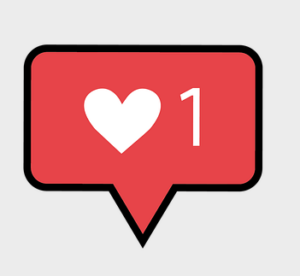by The Cowl Editor on October 10, 2019
Opinion

by Olivia Bretzman ’22
Opinion Staff
College campuses seem to eat, sleep, and breathe social media. Providence College is no exception; in fact, social media, particularly Instagram, holds such a strong presence that many could not imagine life without it.
A lot of research has been done recently to test the effects of social media on the human psyche. As many know well, it often is detrimental to our mental states and obsessive behaviors, resulting in an “addiction” of sorts. One of the most powerful factors is the concept of a “like.” When a phone buzzes to notify someone of a like or message, their brain actually releases hormones causing the person to feel a sense of happiness and validation. Many students can relate to this sensation, and undoubtedly it distracts them from productivity. While almost everyone recognizes this, devices take precedence in daily life.
In lieu of this obsession, Instagram decided to try something rather revolutionary last summer. They tested a few countries by taking away the like function from certain users. Only the person who posted a picture could see the number of likes they received, no one else. They believed it would better the Instagram community due to the recent attention drawn to the negative impacts of likes.
This experiment targeted small pockets of people in Australia, Brazil, Canada, Ireland, Italy, Japan, and New Zealand, creating a totally new, like-less Instagram. Many realized the positive effects of the change, while many rejected the idea, clinging to the old concept of validation per double-tap. An especially passionate group of influencers detested the change. They argued that their livelihoods depend upon likes since they get paid based on how many people like their posts. Given this debate and others’ displeasure with the experiement, Instagram will likely not change the function any time soon; however, this change would be positive in so many ways, especially on a college campus such as PC.
Overall, PC has an incredibly powerful presence on social media. While social media presence is a necessity for clubs, sports, and for personal student expression, the detriment that likes cause outweighs the faux-validation they supposedly produce.
A wonderful lens to examine this issue through would be freshman year. Reality looks like this: finding and following fellow friar freshmen, and then stalking each other, despite having never met. Automatically, sub-conscious judgments begin based on content, followers, but mostly, the likes. The likes on someone’s page not only validate them, but also prove if their followers are real, and if they were popular in high school. All in all, it forms a meaningless judgement of character, with zero depth or knowledge of the actual person behind the profile.
After following hundreds of new freshmen, you feel like you belong to the friar community, which is great! The problem lies in real social life. You would never actually say hi to someone you follow on Instagram unless you know them. This creates not only a false sense of community, but also prevents many from actually reaching out and making legitimate connections in person since they feel like they have already made such connections on their phones.
As the year continues, the cycle continues. This develops into freshmen feeling pressured to post pictures with all the new friends they made and get as many likes as possible. More often than not, one has not encountered their best friends within the first two weeks on campus. Yet, the pressure heightens since social media is a constant topic of conversation amongst many students. Many post pictures with people they do not even talk to the next day.
What, then, would PC look like without likes? Perhaps, liking posts because one actually admires it! The inflation or deflation of self-confidence would be spared. Overall, students could develop more genuine connections with one another, considering the absence of as much prior judgement based on a silly little thumbs-up on a digital screen.
Having made incredibly negative claims against this world, social media still includes a lot of positive aspects here at PC. Especially seen when inquiring how to get involved, one can follow accounts for club sports, clubs in general, BOP, sports teams, PC itself, and beyond. One thing that this involvement does not require, though, is the influence of likes. Hardly anyone focuses on likes for these accounts.
The call to action is simple: draw an awareness to your social media mindset. Where do your thoughts wander as you scroll?